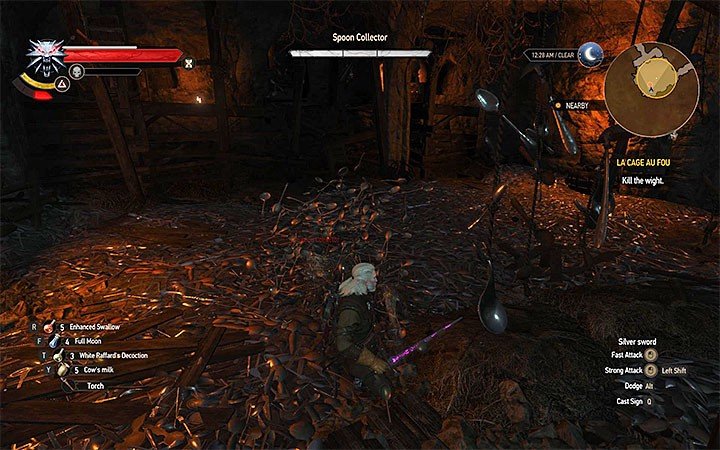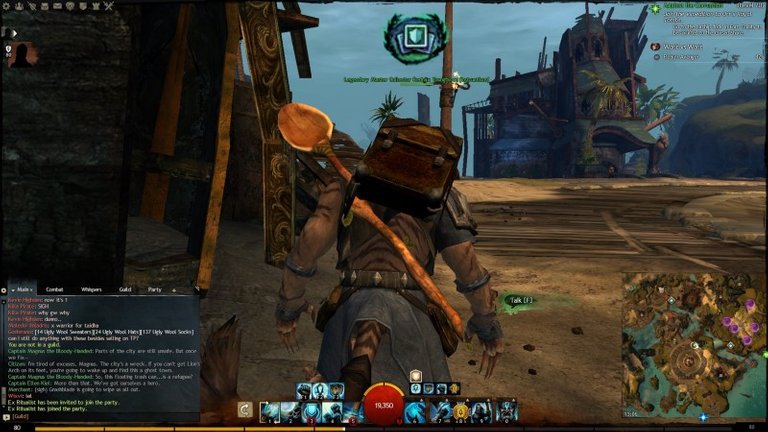Smart Game Objects
Changing the Rules of Gaming
Audience: This article is a slightly technical discussion on the creation of objects in the development process and how that is applied to the blockchain. Ideally, anyone should be able to read this article and understand the implications, even though the audience is for developers and content creators. If you have any interest in the development of video games, the future of the gaming and the internet, please read on.In my last article I briefly discussed digital asset ownership:
As a player in a video game, the current model is: you are paying for the right to play the game. Everything you do in the game world, all the levels your character gains through your experience, the items you find, the items you create, all of it, belongs, not to you, but to the publisher of the game. Even your character. Why? Because it’s in the game and what you paid for was the experience of the game world. If you try to sell your character, or the items you found or made, for money outside the game world, you are likely violating the terms of the game you accepted by purchasing or playing it.
That’s the way it was. Now, I want you to imagine how it should be. This is the journey we are about to embark upon, and we, at 8 Circuit Studios, would be elated if you were to join us.
“Do not try and bend the spoon. That’s impossible. Instead… only try to realize the truth.”
-Boy, The Matrix
The Truth About Objects
I’m just going to say it: There is no spoon. I know it’s cliche, but when we’re talking about video games a spoon in the game is called an “object.” In this case the spoon object is a collection of information bundled together so that when the someone plays the game they will recognize the object as a “spoon.” A spoon will look a lot different in Minecraft than it will in Witcher 3 and the way the player interacts with it will be different too. The information about the spoon tells the player everything they need to know; the name of the object, what it looks like, if it’s something to interact with, how it can be manipulated, can it be stored in inventory, if it has value, etc. With this information the player now knows about the spoon-ness of the spoon in the game world and what the spoon might mean to them.

Spoon Collector, Witcher 3
From the developers perspective they need to define all this information about the spoon or any other object in the game. Depending on how crucial an object is to game play there are various attributes assigned to it. At a minimum each object contains the art assets, size information, level of detail, where the bottom is, etc. It’s when an object becomes an item to interact with, like a weapon, armor, or equipment, that things become a little more intense from the developer or content creators perspective.Now, consider, game-worlds are highly complex, and much like the real world, everything can be described as an object.
Ownership, objectively
Next time you’re playing your favorite game consider the simplest item that your character uses. At least a dozen hours went into rendering that object so you could own it. But do you truly own it? Your character can sell it, trade it, attack with it, maybe even fashion it into something else with a crafting skill. Is that enough to dictate ownership? Or do you simply have license to utilize this object within the world you have paid to have access to when you bought the game? Perhaps it seems like I’m being picky here. The objects exist in the game-world and it’s possible to do with it as the character that possesses it likes.In many games there are items, for all intensive purposes, are identical, from the players perspective. Let’s consider the spoon object we identified earlier. Consider that you uncovered a spoon object in your Favorite MMORPG, Game A, and while playing the single player adventure in Game B you happen to need a spoon. It would be convenient to grab that spoon from the inventory of Game A and use it in Game B. Why can’t you do that? Well, because the rules say you can’t. Game B can’t use the spoon from Game A… that’s just silly. Realistically, in a multiplayer game, that spoon is on an entirely different set of servers that host an entirely different world. When it comes right down to it, it’s the game development team that made the game and to use the spoon that’s in their game you’d have to be in their game. So, now you see, outside that game-world, there is no spoon.

Nice Spoon! Courtesy Guild Wars 2
What if there was a spoon? What if you could take the spoon out of the game world? What if you really owned the spoon? What if it wasn’t just the spoon you could remove from the game-world but it was also the character you had been crafting for months? The character that you have spent time, money, and effort building. A character that would fit just as well into Game B as it did into Game A. Imagine, owning your character and moving it from game to game instead of paying someone else for the honor of making it and then leaving it behind when you were done with the game. Imagine truly owning your character, as well as the items and skills acquired during the adventures you’d guided.
“What is real? How do you define ‘real’? If you’re talking about what you can feel, what you can smell, what you can taste and see, then ‘real’ is simply electrical signals interpreted by your brain.”
-Morpheus, The Matrix
Smart Game Objects
Enter Smart Game Objects, or objects that are blockchain enabled. Let’s take some time to understand what it means to be blockchain enabled. I promise, that this will help get to the idea of a Smart Game Object, so hang in there. If you’ve already got a solid grasp of Blockchains and wallets feel free to jump to Putting it Together.
The Blockchain, Objectified

“What is a Blockchain” courtesy https://www.blockchainhub.net
Looking up the definition of blockchain today (July of 2017) will likely result in something like: “a digital ledger in which transactions made in bitcoin or another cryptocurrency are recorded chronologically and publicly.” That’s accurate, but a bit incomplete. The blockchain ledger is decentralized. This means that the ledger exists completely on every node in the network and that each time a new block is created (a block contains all the transactions for a period of time, 10 min in the case of Bitcoin) it is confirmed by every node on the network. The result is that all the information on the ledger exists on every node. So, even if the entire network went down, as long as there was one remaining node, all the information of the ledger would still be available. This moves the trust for the information on the ledger from the central authority that owns a database to the network where the database is distributed on the internet. Since the entire network is in agreement with what the ledger indicates on each node, changes can not be made to the ledger once the changes are committed. If you trust the network, you can trust the record of the transactions.There exist other blockchains besides Bitcoin. Ethereum being one of the most popular. Ethereum extends the abilities of the blockchain beyond a ledger for tracking transactions by adding the ability to run scripts, or code, called contracts, on the blockchain. Each node allows for the execution of these contracts and they can store and return values. With this ability, transactions with contracts can now store information returned from the contract as part of the “ledger” that is the blockchain. Being able to execute these contracts, or code, on the blockchain means that it’s possible to create objects with stored values as the attributes of the object. Additionally, as an object on the blockchain, it is provided a unique identifier.Putting all this together, you can now have a spoon, or a character, or a planet, or any other game objects, with attributes, stored on the blockchain. This means that every node on the network agrees that this object exists and is also in agreement with the information stored about the attributes of those objects. Trusting the network means you can trust the information about the objects stored on the network.The next thing to address, is how to get this object into your possession now that it exists out there on the network.
What’s a Wallet?
The easiest way to conceptualize a blockchain wallet is as a place to “store” objects that are on the blockchain, whether a cryptocurrency, the tokens to a website or a Smart Game Object. These items are in your wallet and the private key to the wallet provides access to it. That’s the easiest way to think about it and all you need to know if your plan is just to be an end user of these items.Delving past the conceptualization, a wallet is actually the store of keys that only the owner of the wallet, with the private key, has access to. The keys in the wallet authorize access to the items on the blockchain allowing use or modification of those items. For instance, if you “own” a bitcoin, that coin is actually a reference on the blockchain, what you actually own is the key to the coin. When you give a bitcoin to someone, what you are actually doing is letting the blockchain know that the key to that coin is now in another wallet.
Putting it Together
Now, you’ve got your game, you’ve got your spoon, and you’ve got your wallet. Once you move the spoon to your wallet, the wallet lets the blockchain know that it has it (or access to it). Then, when you get into the game, the game checks your wallet to make sure you still have it. But now, when you leave the game, you still have access to the spoon in your wallet. That means you own the spoon. It’s no longer restricted to the game world. Because the spoon (or the key to use the spoon) is directly in your control you can now sell it, trade it, loan it to someone else, create a contract to manage that loan, etc.To extrapolate from the spoon, imagine it’s the character that has 100 hours of gaming put into it. Now, we can create standards around how Smart Game Objects work and you can import that character into another game that is also Smart Game Object enabled. Perhaps you wouldn’t be able to bring everything that character has with you, but we could establish parameters around what’s allowed. Now, when you go from one MMORPG to another it would be possible to at a minimum carry the look of your character with you.
Objectification of the Future
You’ve made this trip this far, now think about how this can all unfold into the future. Every object in every game you play is a Smart Game Object. Every ability your character earns, every item you carry with you, every weapon you have becomes a part of your collection. Imagine what it would be like equipping your character; you could have a web based UI (or a VR based UI) separate from the game world, that told you what items were allowed in the game you were entering into. Pick the items you want, step into the game.
“Select your items” clip Courtesy of The Matrix from Warner Bros. Pictures
Beyond items, you could even acquire skills in one game, or even from a training environment, to bring them into another game.
“I know kung-fu.”
-Neo, The Matrix
To extrapolate further, this will change the nature of games and game development. It will allow the people who work in the game industry to focus on specific aspects of design, or game mechanics, or models, or stats. It will change the development model and what it means to contribute to a video game. My next article will delve deeper into the the future of game development that 8 Circuit Studios will create.
“This is your last chance. After this, there is no turning back. You take the blue pill — the story ends, you wake up in your bed and believe whatever you want to believe. You take the red pill — you stay in Wonderland and I show you how deep the rabbit-hole goes.”
-Morpheus, The Matrix
Join Us
8 Circuit Studios is intent on launching Smart Game Objects and shepherding the discussions around creating standardizations, platforms and models for them. Our first game, D-PARC will utilize them.Would you like to join us in this journey of discovery for what games and game-worlds will look like with Smart Game Objects? Here are some ways in which you can contribute.
As A Gamer and Contributor
If you’re part of the gaming community and it appeals to you to have objects that are yours, that can move with you, that you can modify, trade, sell, etc. Then support our development team to make this fully a reality. You can support us by participating in our token sale. When you buy 8BT tokens that money will go towards making this world a reality, and the first step to an incredible new gaming ecosystem of cooperation. Additionally, as an early adopter you will soon be able to spend those tokens. They will be the currency of all our games. Wave 1 buyers will be given a badge to display on their account in the community as well as access to limited edition Wave 1 branded character AI (the AI is our central character in D-PARC’s story). We expect that people in the future will look at this AI character as a collectible item and the first true Smart Game Object.
As A Member of the Game Development Community
If you’re a part of the game development community, or want to be, in addition to buying our tokens in support of making this a reality, we invite you to join our public slack channel to discuss the creation of Smart Game Objects. We have started this process, but if we do it in a bubble it won’t spread. Help us build standards and models for creating this.
Learn More About 8 Circuit Studios
We are an experienced group of game developers, with over a century of combined experience in the video game industry. We have a passion for creating video games, telling compelling stories, and creating new models to benefit people.Read more about our ideas
The 8 Circuit Studios Token Sale by James Mayo, posted on Medium
The 8 Circuit Studios Experiment by James Mayo, posted on Medium
Video Games, Driving Technology: What’s Next? by Mike Jones, posted on Medium
How 8 Circuit Studios Hopes to Influence the Blockchain and Video Game Industries by Shingai Thornton, posted on MediumFollow 8 Circuit Studios
8 Circuit Studios on Medium
8 Circuit Studios channel on youtube.com
8 Circuit Studios websiteFollow me on Steemit
About Mike Jones
A member of the video game development community for over 20 years, Mike oversees business development and helps guide the vision of the future for 8 Circuit Studios. He’s been fascinated by cryptocurrencies, the blockchain and the potential for where they can take us as a world society. Mike is humbled by the opportunities that have led him to a point in his life, where he is able to take his passion for telling a good story, providing space for people to be their best, and offering opportunities for them to find their own passion.
